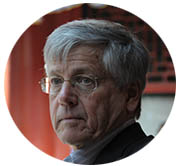Historian of science James Andrews reflects on key moments in the twentieth century in which authoritarian regimes and, at times, democratic ones, have significantly interfered in the enterprise of scientific research. Taking examples from the former Soviet Union and elsewhere, Andrews examines how distortions to the process of peer review and other interventions constitute “warning signs” that portend limits to the autonomy and progress of science that may have resonance today.






















